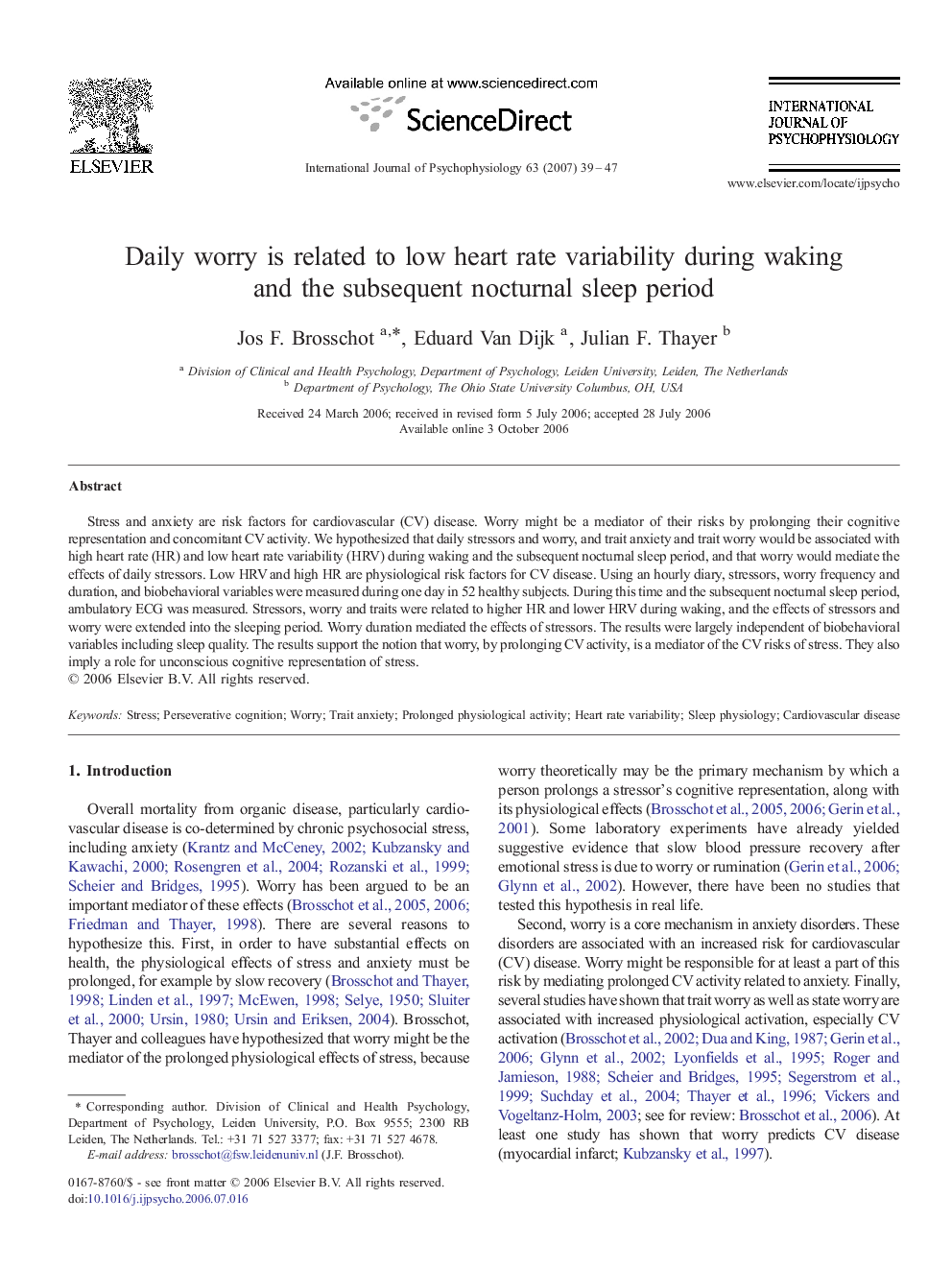| Article ID | Journal | Published Year | Pages | File Type |
|---|---|---|---|---|
| 930903 | International Journal of Psychophysiology | 2007 | 9 Pages |
Stress and anxiety are risk factors for cardiovascular (CV) disease. Worry might be a mediator of their risks by prolonging their cognitive representation and concomitant CV activity. We hypothesized that daily stressors and worry, and trait anxiety and trait worry would be associated with high heart rate (HR) and low heart rate variability (HRV) during waking and the subsequent nocturnal sleep period, and that worry would mediate the effects of daily stressors. Low HRV and high HR are physiological risk factors for CV disease. Using an hourly diary, stressors, worry frequency and duration, and biobehavioral variables were measured during one day in 52 healthy subjects. During this time and the subsequent nocturnal sleep period, ambulatory ECG was measured. Stressors, worry and traits were related to higher HR and lower HRV during waking, and the effects of stressors and worry were extended into the sleeping period. Worry duration mediated the effects of stressors. The results were largely independent of biobehavioral variables including sleep quality. The results support the notion that worry, by prolonging CV activity, is a mediator of the CV risks of stress. They also imply a role for unconscious cognitive representation of stress.
